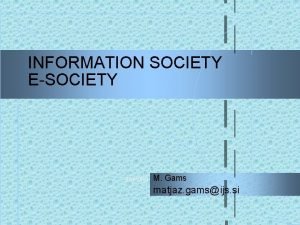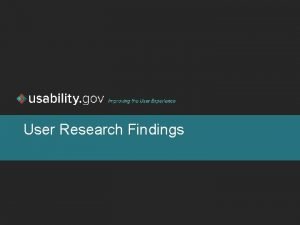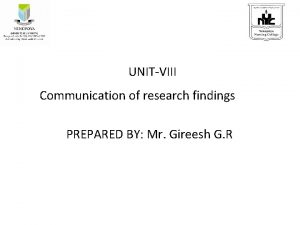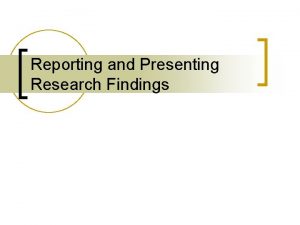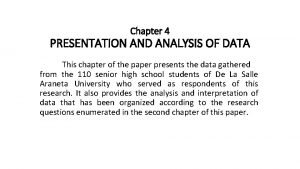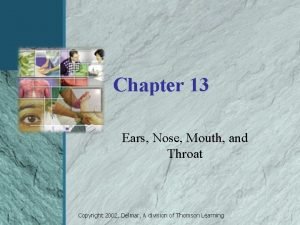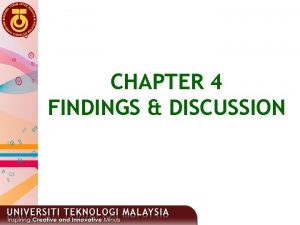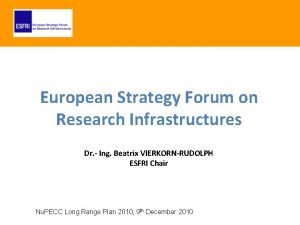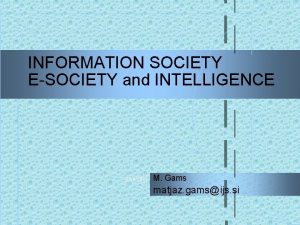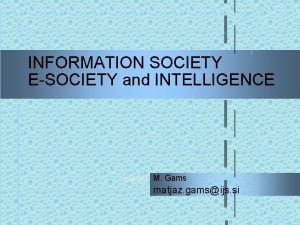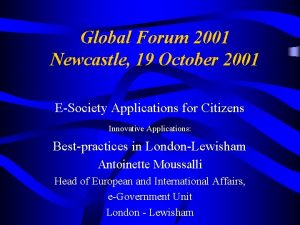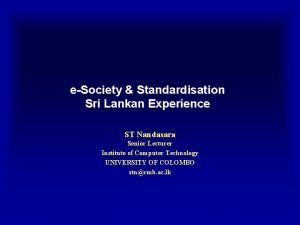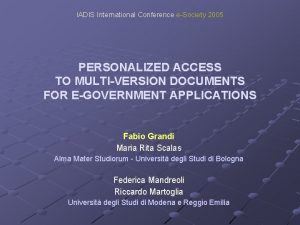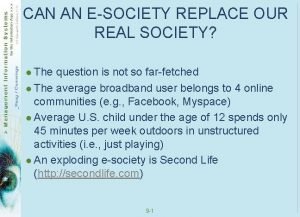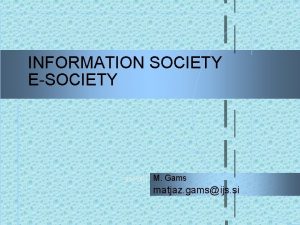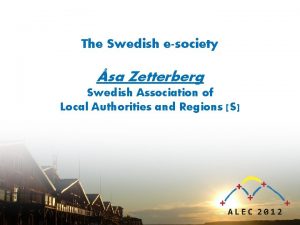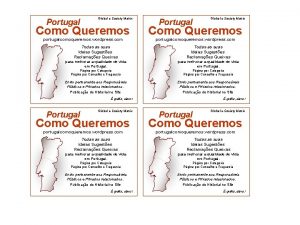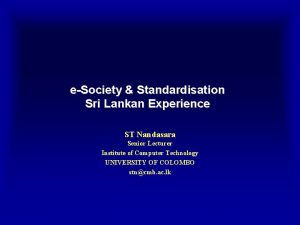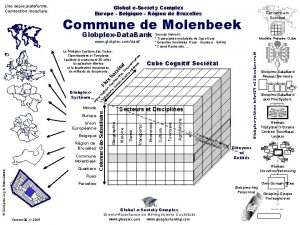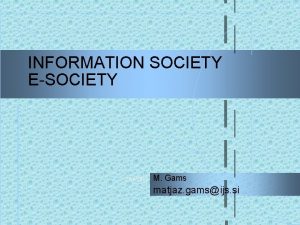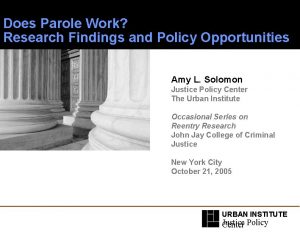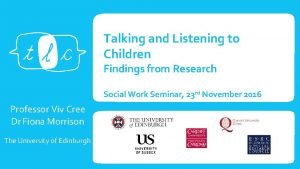Children and esociety European research findings on opportunities

























- Slides: 25

Children and e-society: European research findings on opportunities and risks INFuture 2011: Information Sciences and e-Society University of Zagreb, November 9, 2011 Brian O’Neill, Gov. of Ireland Senior Research Fellow Dublin Institute of Technology

Overview 1. Children in e-society – balancing opportunities and risks 2. EU Kids Online – what the data is telling us 3. Fostering participation in esociety. Framing policy and building trust

Aim of EU Kids Online “To enhance knowledge of the experiences and practices of European children and parents regarding risky and safer use of the internet and new online technologies, in order to inform the promotion of a safer online environment for children”.

Classifying risks (exemplars) Content Contact Conduct Child as receiver Child as participant Child as actor (of mass productions) (adult-initiated activity) (perpetrator / victim) Aggressive Violent / gory content Harassment, stalking Bullying, hostile peer activity Sexual Pornographic content ‘Grooming’, sexual Sexually abuse or exploitation harassment, ‘sexting’ Values Racist / hateful content Ideological persuasion Potentially harmful user-generated content Commercial Embedded marketing Personal data misuse Gambling, copyright infringement Note: risks in bold are included in the survey

EU Kids Online Survey 2009 -11 • Funded by the EC Safer Internet Programme • Fieldwork in spring/summer 2010; interviews conducted at home, face to face • Random stratified sample: ~ 1000 9 -16 year olds in 25 countries, • Informed by national stakeholders and an international advisory panel • The survey covered access, use, activities, risks (sexual images, sexual messages, bullying, meeting strangers), parental mediation, vulnerability, coping – directly comparable across countries

How do children use the internet? Project focus Usage Where How Skills P ro j ec t sco p e Amount What do children do online? What online factors shape their experience? What are the outcomes for children? Activities Opportunities / Risks Benefits / Harms Learn Positive content Create User-generated content Play Sexual content/ messages Meet people Hang out Try new things Bully others Etc. Stranger contact Bullying Learning Self-esteem Sociality Values In/excluded Coping/resilience Personal data misuse Bothered/upset Etc. Abuse Etc.

CHILDREN IN E-SOCIETY – balancing opportunities and risks

Children in e-society Opportunities Risks

EU Legislation and regulation 1996: Green Paper on the protection of minors and human dignity; 1996: Communication on illegal and harmful content on the Internet; 1998/2006: Recommendations on the protection of minors and human dignity; 1999: Multiannual action plan on promoting safer use of the Internet 2002: Resolution on the protection of consumers, in particular young people, through the labelling of certain video games and computer games according to age group; 2007: Audiovisual Media Services Directive (formerly Tw. FD 1989); 2007: European Framework for Safer Mobile Use by Young Teenagers and Children; 2007: Communication on media literacy 2008: Third instalment of the Safer Internet Programme 2009 -13 2008: Communication on the protection of consumers, in particular minors, in respect of the use of video games; 2009: Safer Social Networking Principles for the EU

EU KIDS ONLINE – what the data is telling us

Use at home is high § § § 87% use at home 49% have in bedroom Privatised use is growing SES and age matter more than gender National variation

Mobile access growing § § § 12% handheld devices And 22% have mobile access Flexible access is growing Age and SES matter National variation Ways of going online

Internet embedded in daily life, users are getting younger § § § 57% use every day or almost daily 92% use at least weekly 86 minutes online in an average day (see graph) SES matters especially for daily use: 64% high SES vs. 49% low SES Age matters also for daily use: 33% 9 -10 yrs vs. 77% 15 -16 yrs Children first go online at 9 yrs old: at 7 for 9 -10 yrs, at 11 for 15 -16 yrs Minutes per day online

Multiple opportunities § Average 7 of 17 activities in past month § Schoolwork tops the list § Then content produced by others § Also communication – IM, SNS, email § Webcams popular among teens § Chat rooms less common overall § Creating content is still less common § Few gender differences except games § Age differences are substantial

User types 1. Low use/learning oriented 2. Low use/SNS oriented 3. Moderate use 4. Diverse and risky opportunities 5. High use/entertainment oriented 6. Focused social web use


Uneven digital skills § Average 4 skills claimed by each child § Teens more skilled, 11 -12 year olds lack basic skills § Boys claim more skills § Most skills (4+) in FI, SI, NL, EE, least skills (<3) in HU, RO, IT, TR § 36% (though only 13% 9 -10 year olds) say it’s very true that “I know a lot more about the internet than my parents”

Overall subjective harm “By bothered, we mean, made you feel uncomfortable, upset, or feel that you shouldn’t have seen it” § § § 55% think there are things online that bother people their age 12% have been bothered themselves 8% parents say their child has been bothered 9 -10 year olds less likely to be bothered More children have been bothered in DK, EE, RO, SE, NL Fewest say this in IT, PT, FR, DE

More opportunities, more risks

FOSTERING PARTICIPATION IN E-SOCIETY – framing policy and building trust

Opportunities (and risks) The ladder of opportunities Stage 5: Advanced. Creative. File-sharing, blogging, virtual worlds Stage 4: Playing. Sharing Content Stage 3: Interactive. Communication. Reading/watching news. Stage 2: Information and entertainment. You. Tube Stage 1: Popular internet uses. Content-related

Needs of younger users Provision for younger children online should be a priority. The “European Award for Best Children’s Online Content” is a valuable step in this direction, but such provision could also be supported by high profile national initiatives.

Socio-economic divides and digital difference § For children who lack convenient broadband access, governments should ensure that digital exclusion does not compound social exclusion. § It is important that while all should benefit from public information resources, special efforts are made to ensure these reach the disadvantaged or information-poor.

Digital Citizenship A focus on empowerment rather than restriction of children’s usage, emphasising responsible behaviour and digital citizenship, treating children as a competent, participatory group encouraging selfgoverning behaviour. Government Civil Society Industry Children & esociety Parents Schools

Thank you Email: brian. oneill@dit. ie More at www. eukidsonline. net
 Esociety major
Esociety major Esociety major
Esociety major Findings of qualitative research
Findings of qualitative research Key findings in research example
Key findings in research example Findings in research
Findings in research Data gathering for quantitative research
Data gathering for quantitative research Qualitative results and discussion
Qualitative results and discussion Qualitative and quantitative variables
Qualitative and quantitative variables Example of applied research
Example of applied research Translating research findings to clinical nursing practice
Translating research findings to clinical nursing practice Students diversity in motivation reflection
Students diversity in motivation reflection Reporting research findings
Reporting research findings Presenting research findings
Presenting research findings Presenting insights and findings
Presenting insights and findings Attachment a level psychology
Attachment a level psychology Data presentation and analysis
Data presentation and analysis Mouth and throat assessment normal findings
Mouth and throat assessment normal findings Findings and discussion
Findings and discussion Conclusion for lamb to the slaughter
Conclusion for lamb to the slaughter Example of data analysis in research
Example of data analysis in research Chapter 4 findings and discussion
Chapter 4 findings and discussion European strategy forum on research infrastructures
European strategy forum on research infrastructures European commission community research
European commission community research Axillary line
Axillary line Why is tactile fremitus decreased in pleural effusion
Why is tactile fremitus decreased in pleural effusion Rickets x ray findings
Rickets x ray findings

